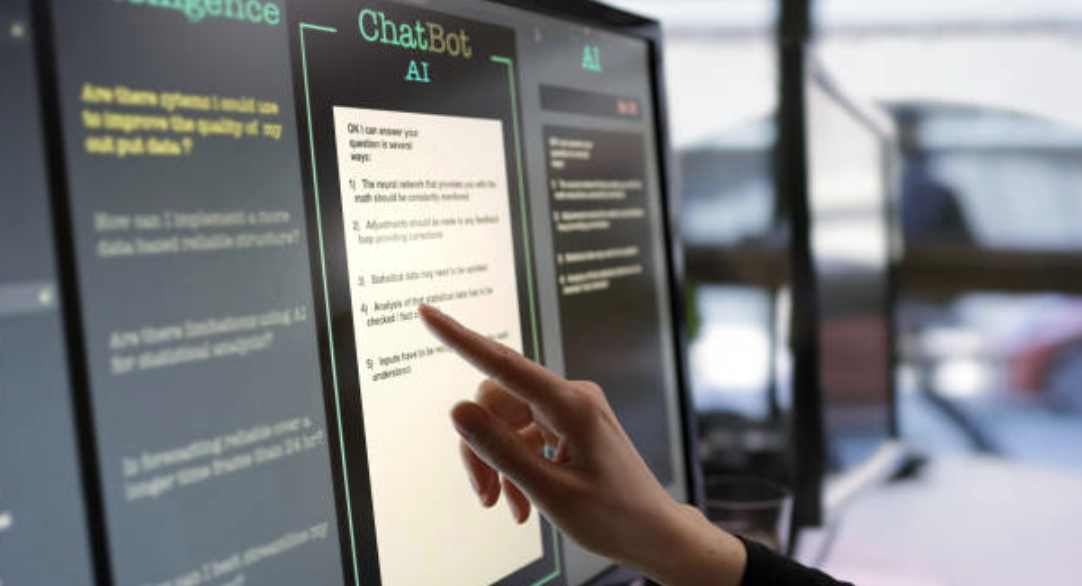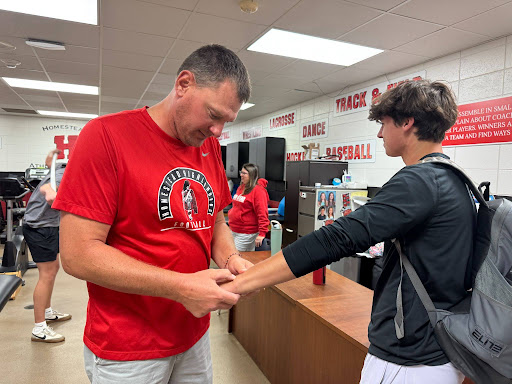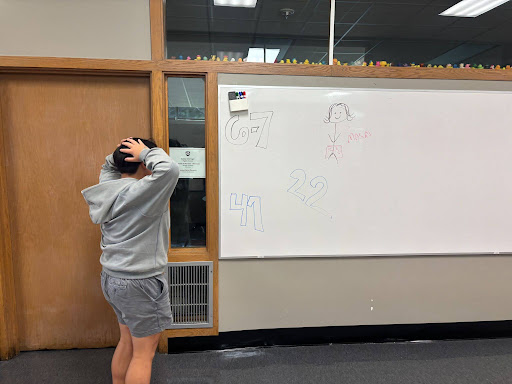Ever since last year’s scandals regarding Artificial Intelligence (AI)/ChatGPT usage in AP Seminar, new protocols and perspectives are in place across Homestead. Every day AI technology becomes more advanced and the temptations to be academically dishonest grow. Even with AI’s hindrance, comes new turning points and growth for the future.
Teachers have become aware of AI’s impediment on students’ ability to progress in their learning.
In the past two years, English and AP Seminar teacher, Eric Bauer has seen an unusually high number of AI issues and students submitting work that is not theirs.
“When you allow someone else to do thinking for you, it takes away your voice and ability to be a critical thinker, especially in English the idea that your opinions be front and center, your ideas, your insights, your beliefs, your feelings about whatever it is.” Bauer said.
After acknowledging the need for more intervention and tracking of students’ work followed more intensive protocols and monitoring.
“The one thing we can see is what the student did in creating the draft. We can see keystrokes, see lines and text as it’s entered,” Bauer said.
After an increase in incidents involving AI, administrators and teachers realized the need for firm regulation.
“One of the rules is all work has to be done in draft and the only pasted stuff in your draft should be stuff you have cited. The College Board for AP Seminar has asked that teachers track the sources that students are using and make sure the students have demonstrated they’ve read the sources by having the students annotate their sources, and then we track the argument followed with the final draft,” Bauer said.
To combat the temptation to rely on outside sources to do their thinking, Bauer suggests, “Rather than focusing on the end product, focus on the process of building an argument.”
Despite AI’s threat to student learning, some feel it can open new doors and possibilities for advancing curriculums and work. Looking towards the future aspect of AI, others find it can be a useful tool and create unimaginable advancements– if used properly.
Computer science teacher, Nicholas Marsh shares his thoughts.
“[AI] only really hinders student learning at Homestead if a student is unwilling to do their own work and consistently tries to use it as a crutch. As a technological tool I see there are a lot of really interesting uses of AI in terms of enhancing learning”, Marsh said. “There’s a lot of really interesting technology out there that would allow Homestead students to do things they might not normally have the time to do- as long as they are interacting with it in an honest way and what they’re doing isn’t replacing the learning but is a part of it.”
As AI technology advances, a new view of incorporating it into curricula comes into play,
“The more we develop these AI programs, what’s going to have to happen is the format and content of our work is going to have to shift to not only compensate for or maybe even incorporate that AI technology,” Marsh said. “We might just be encountering a time when traditional methods just kind of need to change.”








